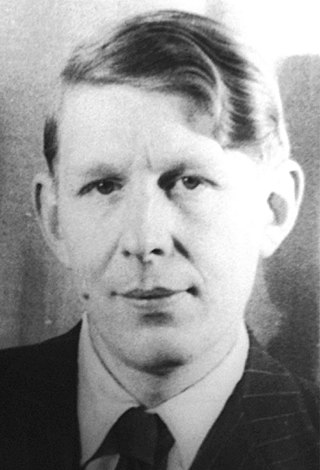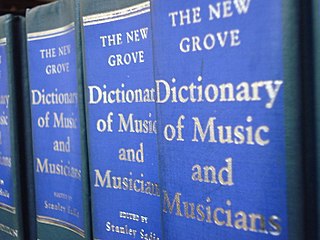
A dictionary is a listing of lexemes from the lexicon of one or more specific languages, often arranged alphabetically, which may include information on definitions, usage, etymologies, pronunciations, translation, etc. It is a lexicographical reference that shows inter-relationships among the data.

An encyclopedia or encyclopaedia is a reference work or compendium providing summaries of knowledge, either general or special, in a particular field or discipline. Encyclopedias are divided into articles or entries that are arranged alphabetically by article name or by thematic categories, or else are hyperlinked and searchable. Encyclopedia entries are longer and more detailed than those in most dictionaries. Generally speaking, encyclopedia articles focus on factual information concerning the subject named in the article's title; this is unlike dictionary entries, which focus on linguistic information about words, such as their etymology, meaning, pronunciation, use, and grammatical forms.

John Ray FRS was a Christian English naturalist widely regarded as one of the earliest of the English parson-naturalists. Until 1670, he wrote his name as John Wray. From then on, he used 'Ray', after "having ascertained that such had been the practice of his family before him". He published important works on botany, zoology, and natural theology. His classification of plants in his Historia Plantarum, was an important step towards modern taxonomy. Ray rejected the system of dichotomous division by which species were classified by repeated sub-division into groups according to a pre-conceived series of characteristics they have or have not, and instead classified plants according to similarities and differences that emerged from observation. He was among the first to attempt a biological definition for the concept of species, as "a group of morphologically similar organisms arising from a common ancestor". Another significant contribution to taxonomy was his division of plants into those with two seedling leaves (dicotyledons) or only one (monocotyledons), a division used in taxonomy today.

The New Oxford American Dictionary (NOAD) is a single-volume dictionary of American English compiled by American editors at the Oxford University Press.

The Oxford English Dictionary (OED) is the principal historical dictionary of the English language, published by Oxford University Press (OUP), a University of Oxford publishing house. The dictionary, which published its first edition in 1884, traces the historical development of the English language, providing a comprehensive resource to scholars and academic researchers, and provides ongoing descriptions of English language usage in its variations around the world.

Wystan Hugh Auden was a British-American poet. Auden's poetry is noted for its stylistic and technical achievement, its engagement with politics, morals, love, and religion, and its variety in tone, form, and content. Some of his best known poems are about love, such as "Funeral Blues"; on political and social themes, such as "September 1, 1939" and "The Shield of Achilles"; on cultural and psychological themes, such as The Age of Anxiety; and on religious themes, such as "For the Time Being" and "Horae Canonicae".

A Dictionary of Modern English Usage (1926), by Henry Watson Fowler (1858–1933), is a style guide to British English usage, pronunciation, and writing. Covering topics such as plurals and literary technique, distinctions among like words, and the use of foreign terms, the dictionary became the standard for other style guides to writing in English. Hence, the 1926 first edition remains in print, along with the 1965 second edition, edited by Ernest Gowers, which was reprinted in 1983 and 1987. The 1996 third edition was re-titled as The New Fowler's Modern English Usage, and revised in 2004, was mostly rewritten by Robert W. Burchfield, as a usage dictionary that incorporated corpus linguistics data; and the 2015 fourth edition, revised and re-titled Fowler's Dictionary of Modern English Usage, was edited by Jeremy Butterfield, as a usage dictionary. Informally, readers refer to the style guide and dictionary as Fowler's Modern English Usage, Fowler, and Fowler's.

The New Grove Dictionary of Music and Musicians is an encyclopedic dictionary of music and musicians. Along with the German-language Die Musik in Geschichte und Gegenwart, it is one of the largest reference works on the history and theory of music. Earlier editions were published under the titles A Dictionary of Music and Musicians, and Grove's Dictionary of Music and Musicians; the work has gone through several editions since the 19th century and is widely used. In recent years it has been made available as an electronic resource called Grove Music Online, which is now an important part of Oxford Music Online.
The Oxford Classical Dictionary (OCD) is generally considered "the best one-volume dictionary on antiquity," an encyclopædic work in English consisting of articles relating to classical antiquity and its civilizations. It was first published in 1949, edited by Max Cary with the assistance of H. J. Rose, H. P. Harvey, and Alexander Souter. A second edition followed in 1970 (OCD2), edited by Nicholas G. L. Hammond and H. H. Scullard, and a third edition in 1996 (OCD3), edited by Simon Hornblower and Antony Spawforth. A revised third edition was released in 2003, which is nearly identical to the previous third edition. A fourth edition was published in 2012 (OCD4), edited by Simon Hornblower, Antony Spawforth, and Esther Eidinow. In 2016, a fully digital edition launched online, edited by Sander Goldberg (2013–2017) and Tim Whitmarsh (2018–present). Continuously updated on a monthly basis, this edition incorporates all 6,300 entries from OCD4 as well as newly commissioned entries, and features multimedia content and freely accessible maps of the ancient world.

The Macquarie Dictionary is a dictionary of Australian English. It is considered by many to be the standard reference on Australian English. It also pays considerable attention to New Zealand English. Originally it was a publishing project of Jacaranda Press, a Brisbane educational publisher, for which an editorial committee was formed, largely from the Linguistics department of Macquarie University in Sydney, Australia. It is now published by Macquarie Dictionary Publishers, an imprint of Pan Macmillan Australia Pty Ltd. In October 2007 it moved its editorial office from Macquarie University to the University of Sydney, and later to the Pan Macmillan offices in the Sydney central business district.

The Oxford Advanced Learner's Dictionary (OALD) was the first advanced learner's dictionary of English. It was first published in 1948. It is the largest English-language dictionary from Oxford University Press aimed at a non-native audience. Users with a more linguistic interest, requiring etymologies or copious references, usually prefer the Concise Oxford English Dictionary, or indeed the comprehensive Oxford English Dictionary, or other dictionaries aimed at speakers of English with native-level competence.
The Canadian Oxford Dictionary is a dictionary of Canadian English. First published by Oxford University Press Canada in 1998, it became a well-known reference for Canadian English.
Robert Malcolm Ward "Bob" Dixon is a Professor of Linguistics in the College of Arts, Society, and Education and The Cairns Institute, James Cook University, Queensland. He is also Deputy Director of The Language and Culture Research Centre at JCU. Doctor of Letters, he was awarded an Honorary Doctor of Letters Honoris Causa by JCU in 2018. Fellow of British Academy; Fellow of the Australian Academy of the Humanities, and Honorary member of the Linguistic Society of America, he is one of three living linguists to be specifically mentioned in The Concise Oxford Dictionary of Linguistics by Peter Matthews (2014).
Robert Cecil Olby was a British research professor in the Department of History and Philosophy of Science at the University of Pittsburgh. Formerly Reader at the University of Leeds, UK, Robert Olby was a historian of 19th and 20th century biology, his specialist fields being genetics and molecular biology. With the assistance of Martin Packer, Olby completed an authorized biography of the late Francis Crick. It is entitled Francis Crick: Hunter of Life's Secrets, after an article in The New York Times on February 2, 1962. Olby was born in Beckenham on October 4, 1933, and died in Willow Spring, North Carolina on 31 December 2020, at the age of 87.

The Oxford Dictionary of Byzantium (ODB) is a three-volume historical dictionary published by the English Oxford University Press. With more than 5,000 entries, it contains comprehensive information in English on topics relating to the Byzantine Empire. It was edited by Alexander Kazhdan, and was first published in 1991. Kazhdan was a professor at Princeton University who became a Senior Research Associate at Dumbarton Oaks, Washington, DC, before his death. He contributed to many of the articles in the Dictionary and always signed his initials A.K. at the end of the article to indicate his contribution.
A Dictionary of Canadianisms on Historical Principles (DCHP) is a historical usage dictionary of words, expressions, or meanings which are native to Canada or which are distinctively characteristic of Canadian English though not necessarily exclusive to Canada. The first edition was published by W. J. Gage Limited in 1967. The text of this first edition was scanned and released as a free-access online dictionary in 2013.

The Oxford Dictionary of English (ODE) is a single-volume English dictionary published by Oxford University Press, first published in 1998 as The New Oxford Dictionary of English (NODE). The word "new" was dropped from the title with the Second Edition in 2003. The dictionary is not based on the Oxford English Dictionary (OED) – it is a separate dictionary which strives to represent faithfully the current usage of English words. The Revised Second Edition contains 355,000 words, phrases, and definitions, including biographical references and thousands of encyclopaedic entries. The Third Edition was published in August 2010, with some new words, including "vuvuzela".












